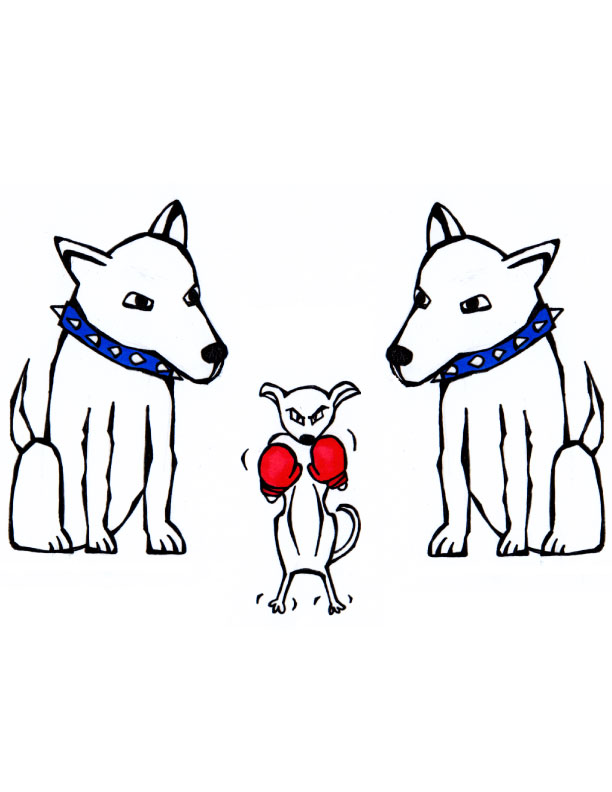The Undergraduate Student Association Council election has always been a bastion of democracy, like a microcosm of real-world politick at the most trivial of levels.
Indeed, it bears no deficiency of similarity with its real-life counterpart, the great American partisan schism between Tweedledum and Tweedledee. With each side parroting the other in comparable platitudes and catchy promises, it isn’t hard to imagine our dear leaders in Washington as veterans of the type of popularity contest soon to fill campus trash bins everywhere.
Student elections are breeding grounds for nebulous partisan squabbles. And the slates that dominate USAC ““ Bruins United and Students First! (obligatory exclamation) ““ have consistently kept low my expectation for real factional friction. A murky, stable gray of vague differences persists instead. Save a certain referendum vital to the survival of this esteemed publication, your scowling skeptic has never cared for the election’s outcome. Frankly, it never mattered.
This year, however, looks different. Stepping up to the plate from the arbiters of activism at Berkeley comes a third slate ready to challenge the stagnant status quo. And their agenda’s so clear, their motive so aberrant, no clever title can contain their call for revolution. Their name says it all: Defend Affirmative Action Party.
I won’t bore you with the details, but let’s just say their platform is, among other things, the defense of affirmative action.
Or, more generously: “DAAP will relentlessly advocate to end the re-segregation and privatization of higher education.”
Nora Cisneros, third-year psychology student and DAAP candidate for USAC general representative, characterizes affirmative action as a means to “rectify current injustices that have deep and complex roots in past injustices.”
Pretty heavy stuff. I suspect this may have something to do with the topic of a column I wrote in the fall (readers might recall my utter disquiet at discovering my own latent racism).
It would be a lie if were I to say I wasn’t doubtful of a USAC representative’s sway over such statewide (or nationwide) matters. Of course, this is the same student council that thought it could end violence in the Gaza strip; they’ve a history of thinking globally, whining locally.
Now, to revile my fellow students for speaking on matters beyond their control would be indeed hypocritical. And in a time like this, when everyone is someone else’s victim, student voice is imperative. Jose Valenzuela, the other DAAP candidate for general representative, has made it his primary focus to “educate the students about the issues that affect the underrepresented community.”
So I’ll give DAAP the benefit of the doubt (I’ve a soft spot for third-party underdogs, after all). I’ll accept that student voice, even that of a minority, is crucial to our dear council. That doesn’t mean I will not question their agenda.
Simply put: It is not the duty of this institution’s admissions office to manufacture a level playing field. It is to ensure that the most qualified students be admitted. Changing the rules of the game to accommodate an underprivileged or otherwise disadvantaged minority is equality at the expense of fairness ““ you wouldn’t lower a basketball hoop to better suit a shorter team.
The question we should be asking ourselves is not how best to buttress equality, but whether or not diversity is in and of itself a necessarily good thing.
Intuition says yes. It is, after all, a chief component of what makes this campus, this state and this nation so fascinating. It is a primer to the make-up of who we are.
Diversity as something worthy of merit is a different story.
From what I gathered at the sectarian spectacle that was the USAC election debate, this is perhaps the single most contentious issue distinguishing otherwise indistinguishable slates.
Though neither side dared disavow the wondrous virtues of diversity, Bruins United tip-toed past the issue with the smooth finesse of ambiguity.
Students First! was far more clear!
Like DAAP, their call to somehow fight the diabolical California Proposition 209 was met with patent applause (at least from one side of the auditorium).
Contra DAAP’s alleged self-image as champions of civil rights, 1996 Prop 209 ““ the California Civil Rights Initiative ““ effectively banned race, ethnicity and sex from being considered by public institutions for employment or education.
This is precisely what civil rights are all about.
They’re about granting no one group special preference over another on the explicit basis of demographic.
They’re about setting fairness, not opportunity, as the foundation for equality.
They’re about securing the academic integrity of this university on merit, not handicap.
Attempts to reinstate affirmative action counteract these goals in two critical ways.
First, affirmative action mends adversity and disadvantage by disrupting fair competition; second, it rewards students on the grounds of their background.
It makes racial, ethnic or socioeconomic status into a qualification, honoring the individual for what she is, not who she is.
Affirmative action is as important today as it was in 1996: not at all.
To quell the ills of racism, affirmative action is at best a band-aid, at worst counter-intuitive, and in an undergraduate student council election such as this, a distraction.
Whether at the forefront of consideration or floating in the ether of priorities, minority preference will always be a dubious concern for USAC to undertake.
So in the off-chance you happen to exercise your democratic privilege, remember that the council should serve all, not some.
E-mail Manalastas at jmanalastas@media.ucla.edu. Send general comments to viewpoint@media.ucla.edu.
